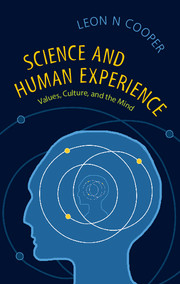Book contents
- Frontmatter
- Dedication
- Contents
- Preface
- Acknowledgement
- Part One Science and Society
- Part Two Thought and Consciousness
- 13 Source and Limits of Human Intellect
- 14 Neural Networks
- 15 Thought and Mental Experience: The Turing Test
- 16 Mind as Machine: Will We Rubbish Human Experience?
- 17 Memories and Memory: A Physicist's Approach to the Brain
- 18 On the Problem of Consciousness
- Part Three On the Nature and Limits of Science
15 - Thought and Mental Experience: The Turing Test
from Part Two - Thought and Consciousness
Published online by Cambridge University Press: 05 November 2014
- Frontmatter
- Dedication
- Contents
- Preface
- Acknowledgement
- Part One Science and Society
- Part Two Thought and Consciousness
- 13 Source and Limits of Human Intellect
- 14 Neural Networks
- 15 Thought and Mental Experience: The Turing Test
- 16 Mind as Machine: Will We Rubbish Human Experience?
- 17 Memories and Memory: A Physicist's Approach to the Brain
- 18 On the Problem of Consciousness
- Part Three On the Nature and Limits of Science
Summary
Is it possible to construct a test that can tell us when a man made entity has achieved consciousness? What can the Turing test tell us about machines that think? What does it leave out?
This essay is based on an article originally published in the book How We Learn; How We Remember: Toward an Understanding of Brain and Neural Systems, published by World Scientific Publishing Co., in 1995.
Over sixty years ago, Alan Turing proposed to test the hypothesis that a machine might think in the following way. Put either a machine or a person into a closed room, and communicate from outside this room in a manner that either the person or the machine can understand. (Let us say, by typing on a keyboard.) If one poses questions to whatever or whoever is in the room and if the responses do not allow one to distinguish between human and machine, then according to Turing, we can say that the machine (or the person) thinks.
Suppose, however, the entity in the room answers all questions with “I don't know,” or “I don't understand what you are saying.” Human being or machine? Could be a programmed computer. Could be one of our denser colleagues. Suppose the questions concern next best moves in the game of tic-tac-toe.
- Type
- Chapter
- Information
- Science and Human ExperienceValues, Culture, and the Mind, pp. 114 - 123Publisher: Cambridge University PressPrint publication year: 2014

